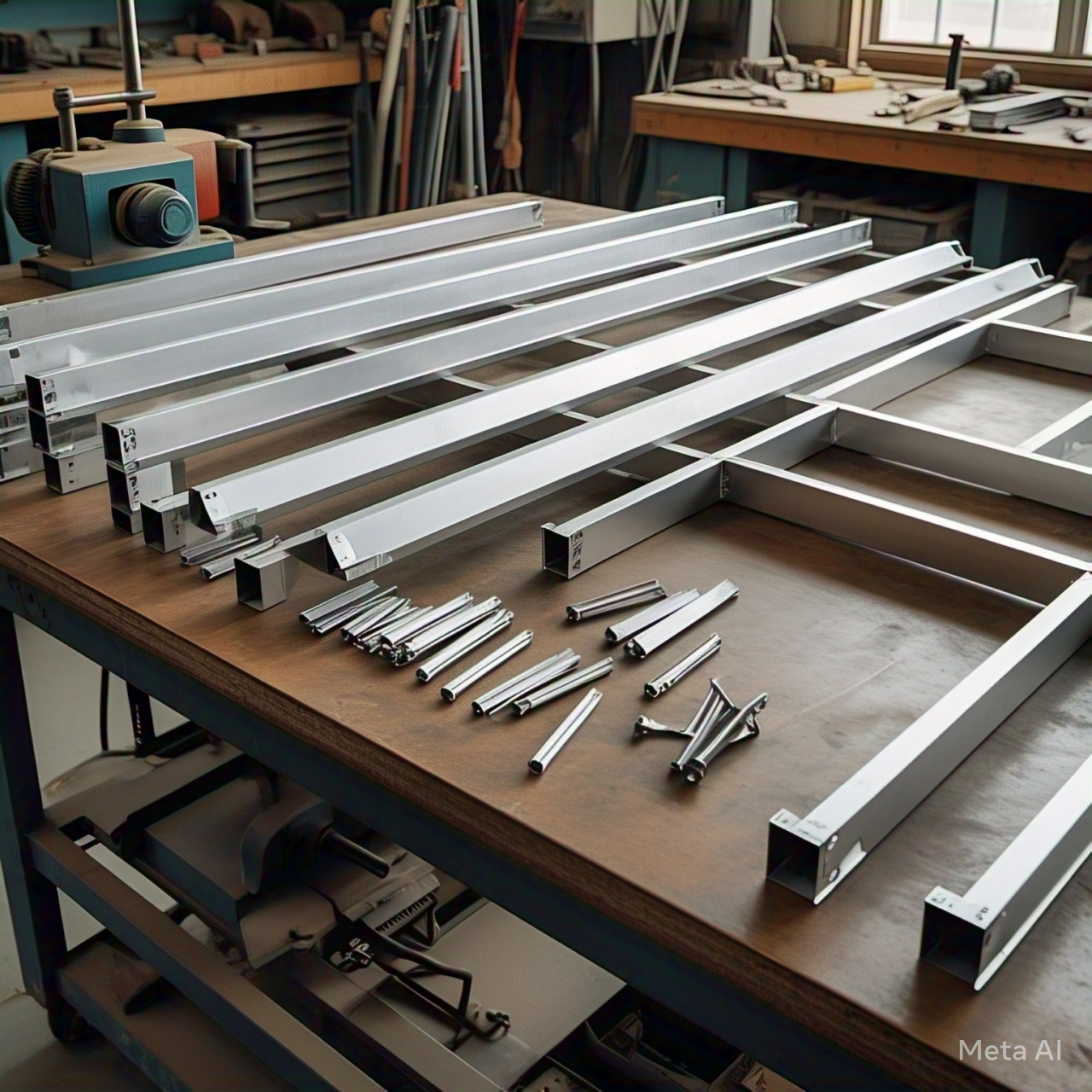In heavy industry, every component plays a critical role in efficiency and durability, yet some materials don’t get the recognition they deserve. Aluminum framing is one of those unsung heroes, quietly providing structural integrity, precision, and protection in complex industrial environments. Beyond just a lightweight alternative to steel, it delivers advantages that many don’t realize until it’s too late.
Precision Alignment Capabilities That Maintain Accuracy in Automated Manufacturing Systems
In modern manufacturing, precision is everything. A fraction of a millimeter can mean the difference between a flawless product and one that fails inspection. Aluminum framing offers exceptional accuracy in automated systems, ensuring that robotic arms, conveyor belts, and assembly lines remain in perfect alignment over time. Unlike steel, which can warp or shift due to its weight and internal stresses, aluminum maintains its shape while providing a rigid yet lightweight framework.
This precision is especially useful in industries like electronics, aerospace, and automotive production, where consistency is non-negotiable. Aluminum framing allows for micro-adjustments, ensuring that every piece of machinery operates at peak efficiency. By eliminating structural inconsistencies, manufacturers can reduce waste, minimize defects, and improve overall productivity without constant recalibration.
Integrated Cable Management That Protects Electrical Wiring and Pneumatic Lines from Damage
Exposed wiring and pneumatic lines are common hazards in industrial settings, leading to premature wear, electrical shorts, or even safety risks. Aluminum framing is designed to incorporate built-in cable management, keeping essential power and air supply lines organized and shielded from external damage. This feature ensures a cleaner, safer, and more efficient workspace.
By running cables inside extruded channels or concealed pathways, aluminum framing prevents accidental snags, corrosion from dust and moisture, and excessive bending that could cause failures. Industries relying on automation, such as robotics and CNC machining, benefit from this level of protection since uninterrupted power and fluid supply are crucial for maintaining continuous operation. A well-organized cable system also simplifies troubleshooting, reducing downtime when maintenance is required.
Heat Dissipation Properties That Prevent Overheating in High-Temperature Work Environments
Temperature control is often overlooked when designing industrial workspaces, yet overheating can compromise both machinery and safety. Unlike steel, which retains heat, aluminum framing naturally dissipates heat more efficiently, preventing equipment from reaching dangerous temperatures. This makes it an ideal choice for industries operating under extreme conditions, such as metal fabrication, glass production, and foundries.
When machinery runs hot, prolonged exposure can lead to expansion, warping, or even breakdowns. Aluminum’s ability to distribute heat evenly reduces these risks, keeping structural integrity intact. Additionally, by using aluminum framing for equipment enclosures and workstations, manufacturers can help maintain a cooler work environment, reducing the need for excessive cooling measures that drive up energy costs.
Non-Magnetic Frameworks That Improve Safety and Performance in Electromagnetic-Sensitive Operations
In environments where electromagnetic interference (EMI) can disrupt sensitive equipment, using the right structural material is essential. Unlike steel, aluminum framing is non-magnetic, making it the preferred choice for industries working with precision electronics, medical imaging devices, and advanced communication systems. It helps prevent interference that could otherwise affect sensors, circuits, or data transmission.
This advantage extends to laboratories, semiconductor manufacturing, and even aerospace applications, where magnetic fields must be carefully controlled. By incorporating aluminum framing into workstations, machine enclosures, and conveyor systems, industries can eliminate one of the many hidden risks associated with EMI, ensuring that delicate operations run smoothly without unwanted disturbances.
Shock Absorption Features That Minimize Structural Fatigue and Extend Equipment Lifespan
Constant vibration and mechanical stress take a toll on industrial equipment, leading to premature wear and increased maintenance costs. Aluminum framing provides natural shock absorption, reducing the impact of repetitive motion and sudden force on machinery. Unlike rigid steel structures that transfer vibrations throughout a system, aluminum absorbs and disperses energy, minimizing fatigue on connected components.
Industries that rely on high-speed automation, such as packaging and material handling, benefit from aluminum’s ability to dampen vibrations. This not only extends the lifespan of machines but also reduces noise levels in the workplace, creating a safer and more comfortable environment for workers. Over time, the reduced stress on equipment translates to lower maintenance costs and improved operational efficiency.







